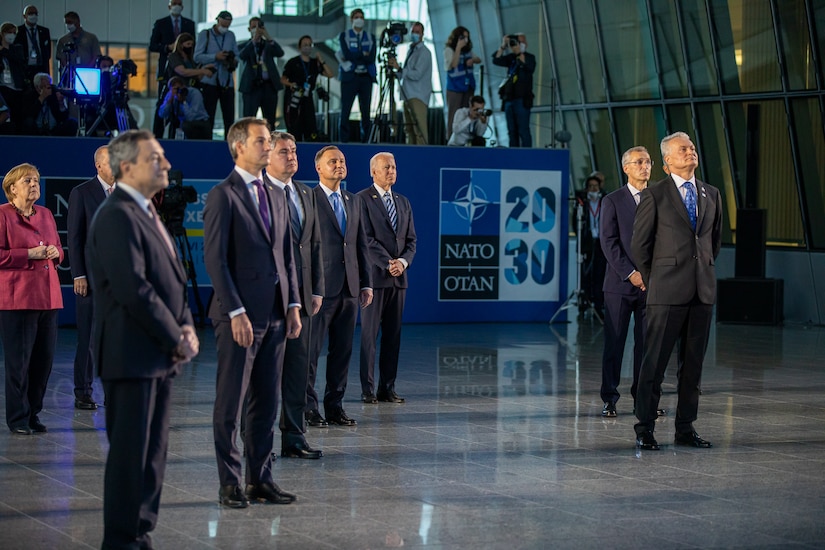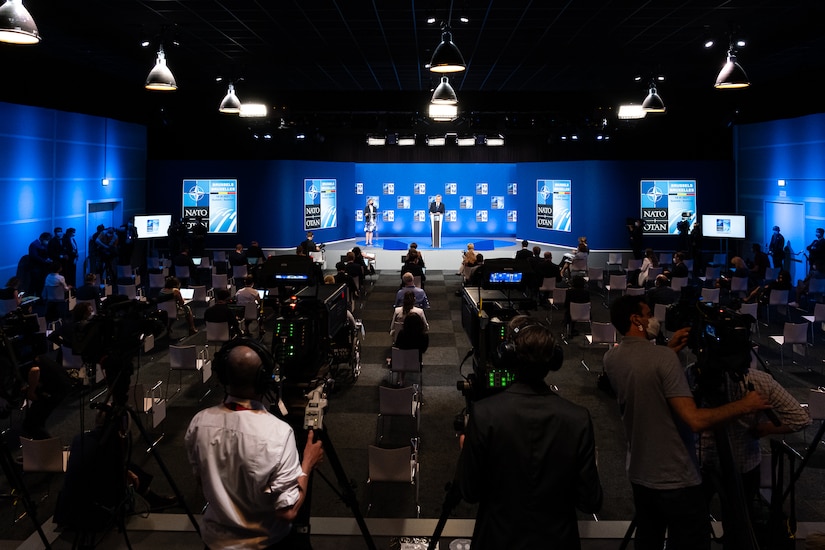June 15, 2021 | , DOD News
NATO Secretary General Jens Stoltenberg said the NATO-Russia relationship, "is at its lowest point since the Cold War, and Moscow’s aggressive actions are a threat to our security."
The alliance leader said this at the end of the NATO Summit in Brussels, where leaders charted the course of the most successful defensive pact in history for the years ahead.

President Joe Biden attended the summit and said America's commitment to the trans-Atlantic alliance is unshakeable. He said the U.S. regards Article 5 of the NATO treaty — which states an attack on one country is an attack on all — as "a sacred commitment."
Secretary of Defense Lloyd J. Austin III accompanied the president to the summit.
Biden spoke to the press after the first day's meeting at NATO headquarters. He noted that in addition to facing the worldwide pandemic, "the democratic values that undergird our alliance are under increasing pressure both internally and externally.
Russia and China are both seeking to drive a wedge in our trans-Atlantic solidarity, and we’re seeing an increase in malicious cyber activity."
The president emphasized what the treaty alliance brings to the world — solidarity in the face of challenges. He also noted that while the United States had stepped back from its leadership in world affairs, "everyone in that room today understood the shared appreciation … that America is back," he said.
During a news conference at headquarters, Stoltenberg said alliance leaders reconfirmed the dual-track approach of defense and dialogue with Russia and China. "We will keep our defenses strong, while remaining ready to talk to make our positions clear, avoid misunderstanding and prevent escalation," he said during a rare in-person press conference.
The allied leaders fully support the decision to extend the New Strategic Arms Reduction Treaty and welcome news arms control talks. "We stand in solidarity with our valued partners Ukraine and Georgia, and we will continue to support their reforms, bringing them closer to NATO," he said.

China is on the other side of the world from the North Atlantic, but NATO leaders had to address the Pacific nation. "There is a strong convergence of views among allies, based on our interests, we see opportunities to engage on issues such as arms control and climate change," the secretary general said. "But China's growing influence and international policies present challenges to alliance security. Leaders agreed that we need to address such challenges together as an alliance, and that we need to engage with China to defend our security interests."
NATO leaders are concerned by China's coercive policies which stand in contrast to the fundamental values enshrined in the Washington Treaty that established the alliance in 1949, Stoltenberg said. "China is rapidly expanding its nuclear arsenal with more warheads and a larger number of sophisticated delivery systems," he said. "It is opaque in implementing its military modernization. It is cooperating militarily with Russia, including through exercises in the Euro-Atlantic area."
NATO leaders called on China to uphold its international commitments and to act responsibly in the international system, including in space, cyber and maritime domains, in keeping with its role as a major power.
President Biden left Brussels on Tuesday and travelled to Geneva where he will meet with Russian President Vladimir Putin.








No comments:
Post a Comment